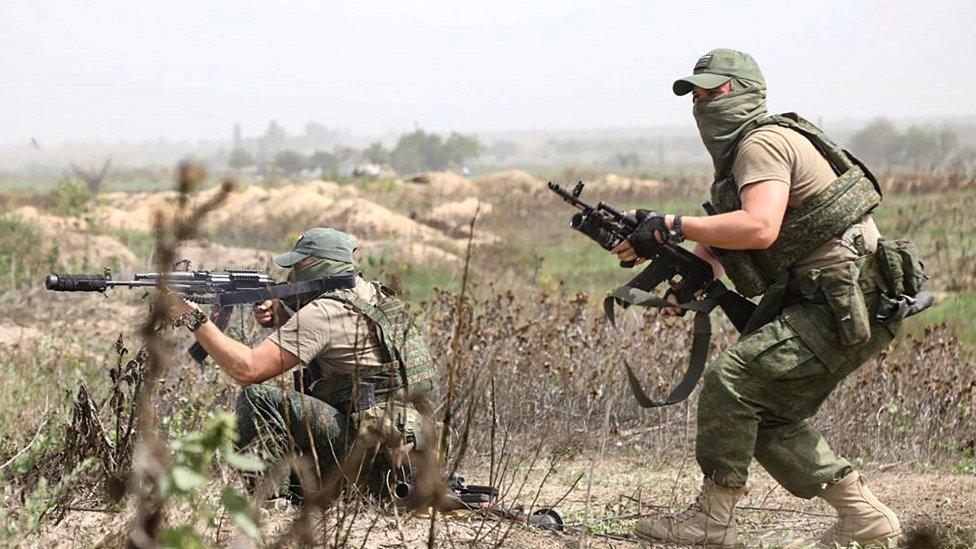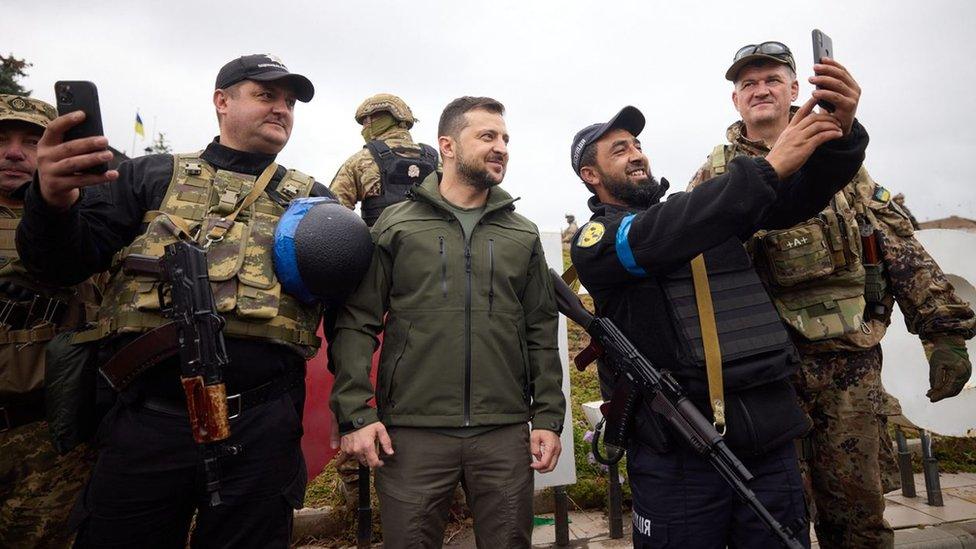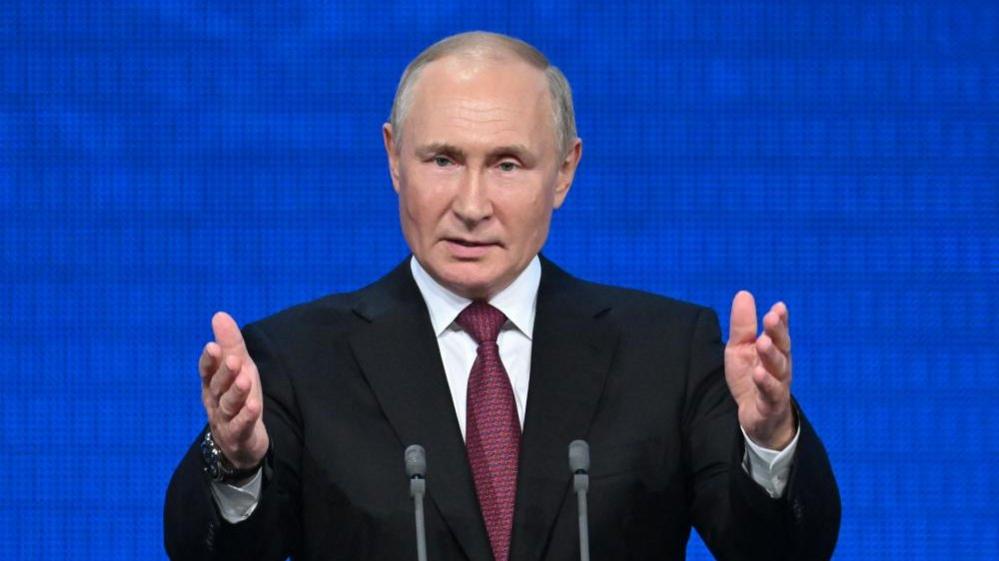Ukraine war: Putin orders partial mobilisation after facing setbacks
- Published
WATCH: Putin announces a partial military mobilisation in Russia
Russian President Vladimir Putin is calling up thousands of extra troops to fight in Ukraine after suffering setbacks on the battlefield.
Mr Putin said the partial mobilisation was necessary to ensure Russian territorial integrity.
Protests broke out in Russia following the announcement, with more than 750 people arrested, according to a Russian human rights organisation, OVD-info.
The announcement applies to 300,000 military reservists.
They make up a fraction of the about 25 million Russian reservists - people who have done their compulsory military service.
Ukrainian President Volodymyr Zelensky said it showed Mr Putin wanted to drown Ukraine in blood - including that of his own soldiers.
The mobilisation is the first since World War Two and comes after Ukraine made gains in a rapid counter-offensive this month, putting the Kremlin on the back foot.
Ukrainian forces have recaptured key towns and villages in the northern Kharkiv region and have made a slower, but still significant progress in the southern Kherson region. Russia, however, still holds about a fifth of the country.
The decree is short on detail. It says nothing about a cap on numbers or about any exceptions, such as not recruiting students or conscripts.
Instead, it is left to regional heads to decide how to meet quotas. In theory, the net could be cast far wider than the Kremlin has specified.
Russian officials said it would announce "very soon" those who would be exempt from its partial mobilisation.
The call-up stops short of full conscription, a move that would have risked turning a public that has so far largely been in favour of the conflict against it.
In his televised address, Mr Putin also issued a thinly veiled threat he could use nuclear weapons.
He said the West was engaging in "nuclear blackmail" and that Moscow had "lots of weapons to reply".
"When the territorial integrity of our country is threatened, we will certainly use all the means at our disposal to protect Russia and our people. It's not a bluff," he said.
US President Joe Biden slammed Mr Putin's actions and said "A nuclear war cannot be won and must never be fought."
Russia's invasion of Ukraine "shamelessly violated" the core tenets of being a member of the UN, he added.
Mr Putin's announcement of a partial mobilisation drew immediate condemnation from Ukraine's allies.
Dutch Prime Minister Mark Rutte called the mobilisation "a sign of panic" while German Chancellor Olaf Scholz called it "an act of desperation".
Mr Putin's address has raised fears that some men of fighting age would not be allowed to leave Russia, even though Russia's Defence Minister Sergey Shoigu said the call-up would be limited to those with combat experience.
One Russian man told the BBC that the move means "nothing guarantees that martial law won't be declared at some point in the future. And then it'll be really impossible for anyone to do anything at all".
There has also been a strong reaction on social media. One Twitter user wrote: "I'm not going to go to war, go screw yourselves. Not only will I surrender right away, I'll also show you the way to the Kremlin."
Video shared on social media has shown protests in several places, including the capital Moscow.
Signs of public dissent have become increasingly rare in Russia. The conflict in Ukraine is still referred to as a "special military operation" in Russian state media, with the word "war" banned.
Flights out of Russia sold out fast following the announcement. Direct flights from Moscow to Istanbul in Turkey and Yerevan in Armenia, appear to have sold out for the next few days. Both destinations allow Russians to enter without a visa.
However it is not possible to confirm when these flights were sold.
Related topics
- Published21 September 2022

- Published14 September 2022

- Published21 September 2022
